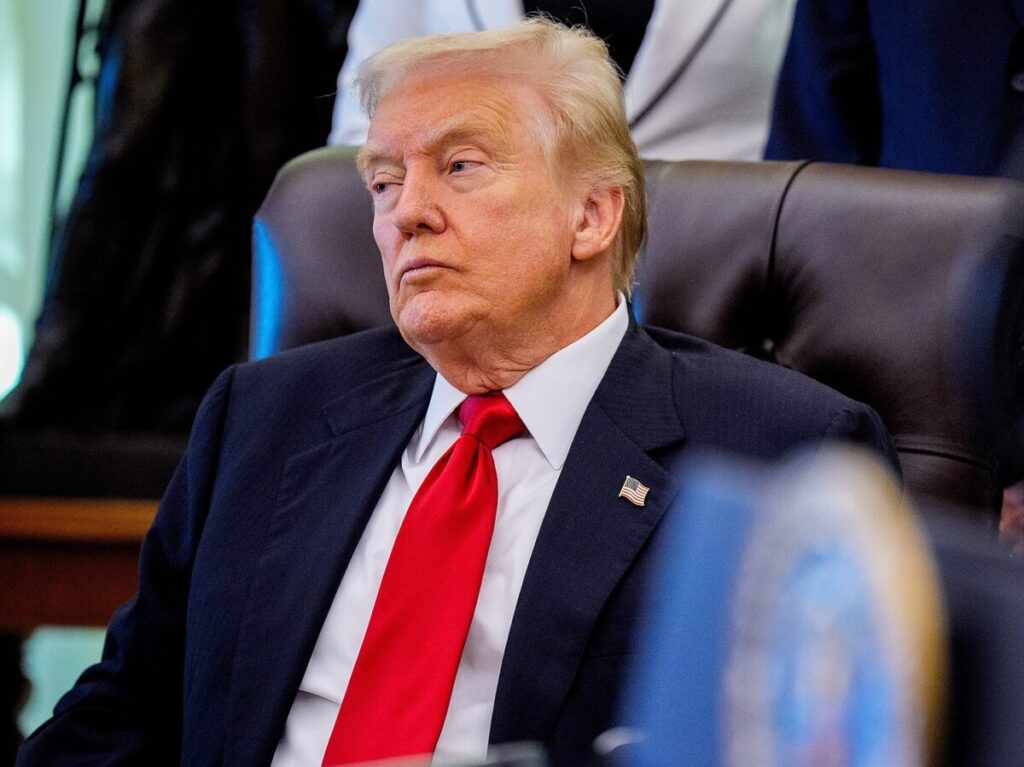A new Trump decision could make future relief harder for student-loan borrowers
In a significant legal move, the Trump administration has declared the funding structure of the Consumer Financial Protection Bureau (CFPB) unconstitutional, raising alarms about the potential demise of this crucial consumer protection agency. In a legal filing dated November 10, Russell Vought, the acting director of the CFPB, warned that the agency could exhaust its funds as early as 2026. The CFPB, established in 2011 in the wake of the financial crisis, has played a pivotal role in safeguarding borrowers, particularly in the realm of student loans. Vought’s memo asserts that the CFPB’s reliance on funding from the Federal Reserve is flawed, arguing that the agency can only draw from the Fed when it is generating profits—something that has not occurred in recent years. This development poses a serious threat to the protections afforded to student-loan borrowers, who have increasingly relied on the CFPB to navigate a complex and often predatory lending landscape.
The implications of the CFPB’s potential shutdown are profound, particularly for student-loan borrowers. Historically, the agency has been instrumental in holding student-loan servicers accountable, fining them for misleading practices and returning millions to borrowers subjected to predatory behavior. For instance, the CFPB has taken legal action against major lenders, such as suing the student loan servicer PHEAA over illegal collection practices related to discharged loans. However, since Trump took office, the agency’s oversight has been severely curtailed, with directives to cease most operations and deprioritize student-loan oversight. If the CFPB were to run out of funding, oversight of the student-loan industry could shift to state attorneys general, but experts caution that this would lead to inconsistent enforcement and potentially leave borrowers vulnerable. John Rao, a senior attorney with the National Consumer Law Center, emphasizes that the absence of a robust federal regulator could exacerbate issues for borrowers, as servicers would encounter less pressure to comply with legal standards.
As the Trump administration prepares to implement significant changes to student-loan repayment plans, including new borrowing caps and fewer repayment options, the need for oversight is more critical than ever. While the Department of Education has announced plans to create a centralized manual for servicing practices, the diminished resources and staffing levels raise concerns about effective enforcement. The situation is further complicated by the Supreme Court’s earlier ruling affirming the constitutionality of the CFPB’s funding, which contradicts the administration’s current stance. Senator Elizabeth Warren, a key architect of the CFPB, has condemned Vought’s actions as illegal, asserting that the courts have already rejected this fringe theory. As the landscape of student-loan oversight continues to evolve, the future of borrower protections hangs in the balance, underscoring the vital role of the CFPB in maintaining accountability within the financial system.
Trump’s administration said the CFPB’s funding structure is unconstitutional, jeopardizing protections for student-loan borrowers.
Andrew Harnik/Getty Images
Trump’s administration said in a legal filing that the CFPB could run out of funds next year.
It could lead to the end of the consumer protection agency.
It puts protections and future relief for student-loan borrowers at risk.
The demise of a
key consumer protection agency
could push relief for student-loan borrowers further out of reach.
Attorneys for Russell Vought, acting director of the Consumer Financial Protection Bureau, wrote
in a legal filing
on November 10 that the administration “anticipates exhausting” the CFPB’s available funds in early 2026, meaning that after that point, the agency created in 2011 to protect Americans from another financial crisis will be defunct.
Vought wrote in a memo that
the CFPB’s funding structure
, which relies on money from the Federal Reserve, is not constitutional, marking the Trump administration’s most significant step to date in attempting to shut down the agency. Vought argued that the agency can only draw from the Fed when the central bank is turning a profit, which it has not done in recent years.
Getting rid of the CFPB would remove a level of oversight on financial institutions — and also raises increased risks for student-loan borrowers, John Rao, a senior attorney with the National Consumer Law Center, told Business Insider.
“Earlier administrations have worked closely with the CFPB to ensure that servicers comply with the contracts they have to service student loans, and also to make sure that the laws are carried out as they should,” Rao said. “And I don’t think any of us have any confidence at this point that that’s going to occur.”
Do you have a story to share about student loans? Contact this reporter at
asheffey@businessinsider.com
.
Since the CFPB was created, it has fined student-loan servicers for misleading borrowers about payments and debt relief, sued major student-loan lenders, and returned millions of dollars to borrowers who the CFPB determined were affected by predatory behavior. It also took on private student debt — the
CFPB sued servicer PHEAA
in 2024 over accusations that it illegally collected borrowers’ private loans that were already discharged through bankruptcy.
The agency’s work, however, was halted soon after President Donald Trump took office. Treasury Secretary Scott Bessent ordered CFPB employees to
cease most of their work
in February, and in an April memo, the agency’s chief legal officer said that the CFPB will
“deprioritize” student-loan oversight
.
Should the CFPB run out of funding next year, Rao said that oversight of the student-loan industry would likely fall into the hands of the states, and the level of oversight would vary depending on each attorney general’s priorities.
“A lot of those offices are strapped for resources,” Rao said. “So it would be hard to say that they would be an equal replacement for the CFPB, but that is a possibility, and that’s not going to happen in every state.”
Where student-loan oversight stands
The Supreme Court ruled earlier this year that the CFPB’s funding is constitutional, siding with the agency over payday lenders
who brought the lawsuit
. Sen. Elizabeth Warren, who helped create the CFPB, said in a statement that Vought’s latest move to shut down the CFPB is “plainly illegal, and federal judges have already rejected his fringe theory. If the courts continue to uphold the law, Vought will fail again.”
With or without the CFPB, student-loan oversight has dwindled this year. The Department of Education has slashed its staff as part of Trump’s larger goal
to shut down the agency
altogether, meaning there are limited resources to ensure student-loan servicers are complying with their contracts and meeting their obligations to borrowers.
Still, the department announced in September that it would develop a new “common manual” intended to
serve as a centralized place
for servicing and debt collection practices, with the idea that consistent guidelines for borrowers and servicers would make it easier for the department to pursue enforcement actions.
Oversight over the industry will become more critical next year; the Trump administration is set to implement its sweeping changes to
student-loan repayment plans
, which include new borrowing caps on graduate and professional student loans and fewer repayment plan options.
Rao said that, absent the CFPB, servicers will face less pressure from regulators to ensure they’re following the law.
“Things could get worse rather than better because there’s not effectively a regulator, another regulator saying you need to do this,” Rao said.
Read the original article on
Business Insider
Eric
Eric is a seasoned journalist covering Business news.



